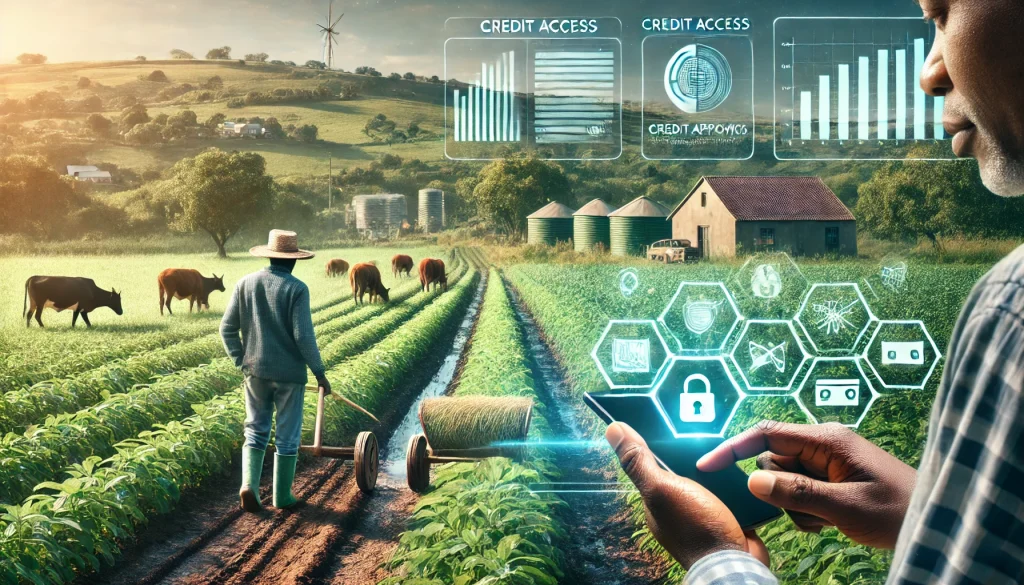In the heart of South Africa, agriculture plays a vital role in driving the economy. However, smallholder farmers often struggle to gain access to credit through traditional banking institutions due to stringent requirements and bureaucratic processes. This is where the concept of fintech credit access emerges as a potential game-changer, offering innovative solutions to overcome these hurdles. By leveraging financial technology, these farmers can access credit more efficiently, fostering growth and sustainability in the agricultural sector.
Financial technology, or fintechs, is reshaping the landscape of credit for small farmers. It not only simplifies the process but also opens new avenues for financial inclusion. For rural communities, where access to credit has always been a challenge, the rise of fintech offers hope. The promise of faster, more accessible, and diverse financial services is a beacon of change, driving a transformation not only in financial accessibility but also in the overall development of rural economies.
The role of fintechs in rural credit access

Fintechs, a blend of finance and technology, are revolutionizing the financial sector by offering innovative solutions that traditional banks often cannot provide. These digital platforms and mobile banking technologies are making it easier for small farmers to secure loans without the hassle of conventional banking obstacles. In South Africa, several fintech companies have made significant strides in the agriculture industry, allowing for seamless interactions and transactions in rural areas.
For instance, platforms such as Jumo and RainFin have been pivotal in providing financial services tailored to rural needs. These companies use mobile technology to simplify the lending process, enabling faster approvals and more efficient service delivery to small farmers. Such innovations highlight the critical role fintech credit access plays in bridging the gap between financial institutions and underserved agricultural communities.
Benefits for small farmers
One of the most significant advantages of fintech credit solutions is the expedited approval process. Gone are the days of tedious paperwork and extended waiting periods; with fintech, farmers experience streamlined credit evaluations, which facilitate quicker funding. This efficiency can be a lifeline, particularly during planting seasons when funding is crucial for purchasing seeds and equipment.
Furthermore, fintech solutions often offer more competitive interest rates compared to traditional banking options. This is achieved through alternative financing models, such as peer-to-peer lending and microcredit systems, which offer more affordable options to smallholder farmers. Additionally, digital payment solutions reduce the dependency on cash, simplifying financial management in rural settings.
Technologies driving agricultural finance
Innovative technologies such as blockchain greatly enhance transparency and security within financial transactions. Utilizing blockchain, fintech solutions can ensure that all agricultural transactions are both traceable and secure, building trust among rural stakeholders who may be wary of digital finance.
Another valuable tool is the use of artificial intelligence and big data to assess credit risk. These technologies enable more accurate evaluations, ensuring fair credit allocations, and reducing risks associated with lending to small-scale farmers. Additionally, mobile payments and digital wallets facilitate easier transactions, allowing farmers to manage their finances more effectively.
Challenges and limitations of fintechs credit
Despite the benefits, several challenges accompany the deployment of fintech solutions in rural areas. Many rural regions lack reliable internet access and adequate mobile device penetration, limiting the reach of digital financial services. This digital divide poses a significant obstacle to the widespread adoption of fintech solutions in agriculture.
Moreover, there is often a cultural mistrust of digital services among traditional farmers who are accustomed to cash-based transactions. Building trust through education and outreach is essential for increasing fintech adoption. Additionally, regulatory frameworks can impede the growth of fintechs, necessitating careful navigation to expand their services effectively.
The future of digital agricultural finance in South Africa
The future of fintechs credit access in rural Africa looks bright, with continual growth in the sector anticipated. Increasing partnerships between fintech firms and established banks present opportunities to expand service offerings and improve infrastructure in rural communities.
Governments also have a crucial role to play by providing support and creating favorable policies that encourage the use of digital credit solutions. By fostering an environment conducive to fintech growth, policymakers can help ensure that smallholder farmers gain access to the financial tools needed to thrive.
Conclusion: The impact of fintechs on agriculture
In summary, the advent of fintechs in rural credit markets presents significant opportunities, coupled with distinct challenges. While fintech solutions offer faster, more accessible financing options, geographic and cultural barriers still need to be addressed. The support of government initiatives and continued innovation within the sector are critical in overcoming these challenges, promising a future where small farmers in South Africa can flourish with the power of fintech credit access.
Fintechs role in transforming agricultural finance is only just beginning, and its potential to revolutionize rural economies is immense. As digital lending solutions continue to evolve, they will become increasingly tailored to the specific needs of smallholder farmers, making credit more accessible and efficient.
However, the success of this financial revolution depends on collaborative efforts from fintech companies, policymakers, and rural communities to bridge the digital divide and foster financial literacy. To explore more about the latest fintech advancements and their impact on emerging economies, visit our platform.



